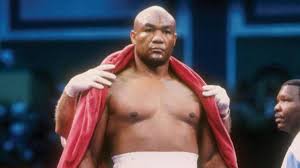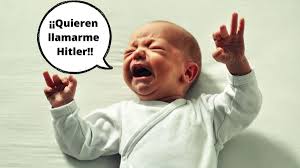By Pablo de Ronda
 Parents often find it hard to name their new-born babies. In some countries of course, it is straightforward; tradition dictates that the first-born son takes the father’s given name. Problem solved. In others, especially catholic countries, by convention a Christian name must be religious or biblical. Some countries have an official list of forenames and only names on that list are permitted. In others certain names are taboo and avoided. In the majority of secular countries, anything goes.
Parents often find it hard to name their new-born babies. In some countries of course, it is straightforward; tradition dictates that the first-born son takes the father’s given name. Problem solved. In others, especially catholic countries, by convention a Christian name must be religious or biblical. Some countries have an official list of forenames and only names on that list are permitted. In others certain names are taboo and avoided. In the majority of secular countries, anything goes.
Preamble
One of the first questions to be resolved by couples who are about to become parents, when they learn of the sex of their baby, is “What are we going to call him/her?”
They will often not be short of advice from relatives and friends. “You’re really going to call her that, are you?”
Others will say “Too modern, too classical, very long, very short.”
Seriously, though, naming a child is not to be taken lightly. A child’s name is, after all, it’s calling card.
Trends
 In some western countries, eg the UK and the USA, names come in and out of fashion. Who, today, would name their child Elvis or Madonna? Back in the day many did.
In some western countries, eg the UK and the USA, names come in and out of fashion. Who, today, would name their child Elvis or Madonna? Back in the day many did.
Names like Wayne, Lee and Darren have pretty much come and gone.
Going further back, how many British females alive today are called Elsie, Gladys or Hermione?
My four British grandsons are called Felix, Wilbur, Jude and Buckley. Quite unusual, although Jude has crept into the charts lately.
A noticeable trend in Germany in the last few decades has been to choose Nordic forenames, like Lars, Björn, Ronja or Freya.
 My German step-grandchildren are Anton, Madita and Lotta, the latter two characters from children's stories by Swedish writer Astrid Lindgren.
My German step-grandchildren are Anton, Madita and Lotta, the latter two characters from children's stories by Swedish writer Astrid Lindgren.
As for the tradition of naming the first male child after the father, a certain former American Heavyweight Boxing Champion, took it to extremes. George Foreman named all five of his sons George also, and one of his seven daughters Georgette. Vain, or what?
George Foreman [Photo: Mundo Deportivo]
Tables or lists
A list of the most popular forenames based on registered births in the UK in the year I was born, 1950, revealed the following:
Top 5 Baby Names for Boys in 1950
1. James
2. Robert
3. John
4. William
5. Richard
Top 5 Baby Names for Girls in 1950
1. Linda
2. Mary
3. Patricia
4. Barbara
5. Susan
70-odd years later, there has been quite a change.
Top 5 Baby Names for Boys in the UK (2021)
- Noah
- Oliver
- George
- Leo
- Theo
Top 5 Baby Names for Girls in the UK (2021)
- Amelia
- Olivia
- Isla
- Ava
- Freya
Note that there are no names common to either list.
Official Lists
 In some countries, eg Spain, certain names are banned. Indeed, there are official lists of approved names enshrined in law, la Ley del 8 de julio de 1957 of the Civil Register. It is regularly updated to account for changing trends.
In some countries, eg Spain, certain names are banned. Indeed, there are official lists of approved names enshrined in law, la Ley del 8 de julio de 1957 of the Civil Register. It is regularly updated to account for changing trends.
Banned names include Hitler, Judas, Osama Bin Laden, Loco (Crazy) and Caca (Shit); names of fruits; acronyms; complete names of famous people, eg Rafael Nadal, Pedro Sánchez; commercial names such as Chanel, Nutella, Mercadona; surnames.
So, the daughter of Gwyneth Paltrow and Nick Martin could not have been named Apple if they had been living in Spain at the time.
Classic names such as Martín, Mateo, Hugo, Lucas; and Lucía, María, Martina, Julia and Sofía are still, popular. Up and coming are Leo, Enzo, Thiago, Noah; and Alma, Mía and Chloe (according to the Instituto Nacional de Estádistica (National Statistics Institute).
No Restrictions
In many countries there are no restrictions, including, as mentioned earlier, the UK and the USA, as well as Germany, but by convention, in none of these three countries has the name Adolf been in use since the Second World War.
Apparently, back in the late 30s, Adolf Hitler’s brother is rumoured to have lived in Liverpool, UK. Rumour has it he changed his surname smartish! However, my extensive research has failed to verify this as fact.
© Pablo de Ronda
Acknowledgements:
Carmen Barreiro (Diario Sur)
Diario Informacion
FirstCry Parenting
NHS
Wikipedia